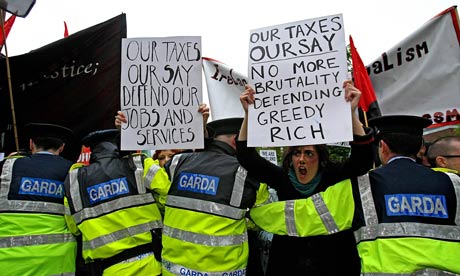President Obama spoke to the youth of Europe at the Palais des Beaux Arts in Brussels, Belgium.
President Barack Obama:
Your Majesties, Mr. Prime Minister, and the people of Belgium — on behalf of the American people, we are grateful for your friendship. We stand together as inseparable allies, and I thank you for your wonderful hospitality. I have to admit it is easy to love a country famous for chocolate and beer. […]
Throughout human history, societies have grappled with fundamental questions of how to organize themselves, the proper relationship between the individual and the state, the best means to resolve inevitable conflicts between states. And it was here in Europe, through centuries of struggle — through war and Enlightenment, repression and revolution — that a particular set of ideals began to emerge: The belief that through conscience and free will, each of us has the right to live as we choose. The belief that power is derived from the consent of the governed, and that laws and institutions should be established to protect that understanding. And those ideas eventually inspired a band of colonialists across an ocean, and they wrote them into the founding documents that still guide America today, including the simple truth that all men — and women — are created equal.[…]
So I come here today to insist that we must never take for granted the progress that has been won here in Europe and advanced around the world, because the contest of ideas continues for your generation. […]
There will always be voices who say that what happens in the wider world is not our concern, nor our responsibility. But we must never forget that we are heirs to a struggle for freedom. Our democracy, our individual opportunity only exists because those who came before us had the wisdom and the courage to recognize that our ideals will only endure if we see our self-interest in the success of other peoples and other nations. […]
To be honest, if we defined our interests narrowly, if we applied a cold-hearted calculus, we might decide to look the other way. Our economy is not deeply integrated with Ukraine’s. Our people and our homeland face no direct threat from the invasion of Crimea. Our own borders are not threatened by Russia’s annexation. But that kind of casual indifference would ignore the lessons that are written in the cemeteries of this continent. It would allow the old way of doing things to regain a foothold in this young century. And that message would be heard not just in Europe, but in Asia and the Americas, in Africa and the Middle East. […]
In the end, the success of our ideals comes down to us — including the example of our own lives, our own societies. We know that there will always be intolerance. But instead of fearing the immigrant, we can welcome him. We can insist on policies that benefit the many, not just the few; that an age of globalization and dizzying change opens the door of opportunity to the marginalized, and not just a privileged few.
Full transcript below the fold …
